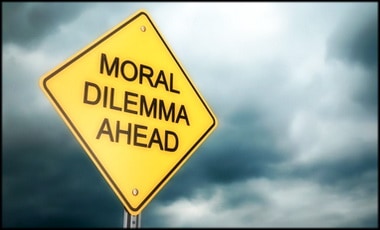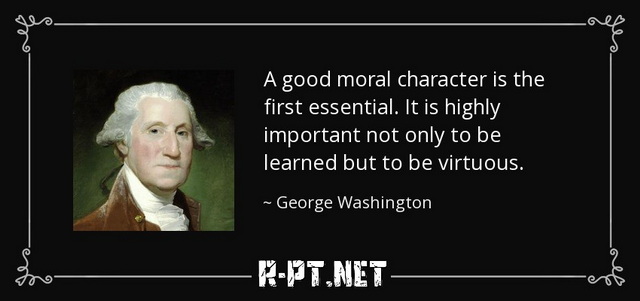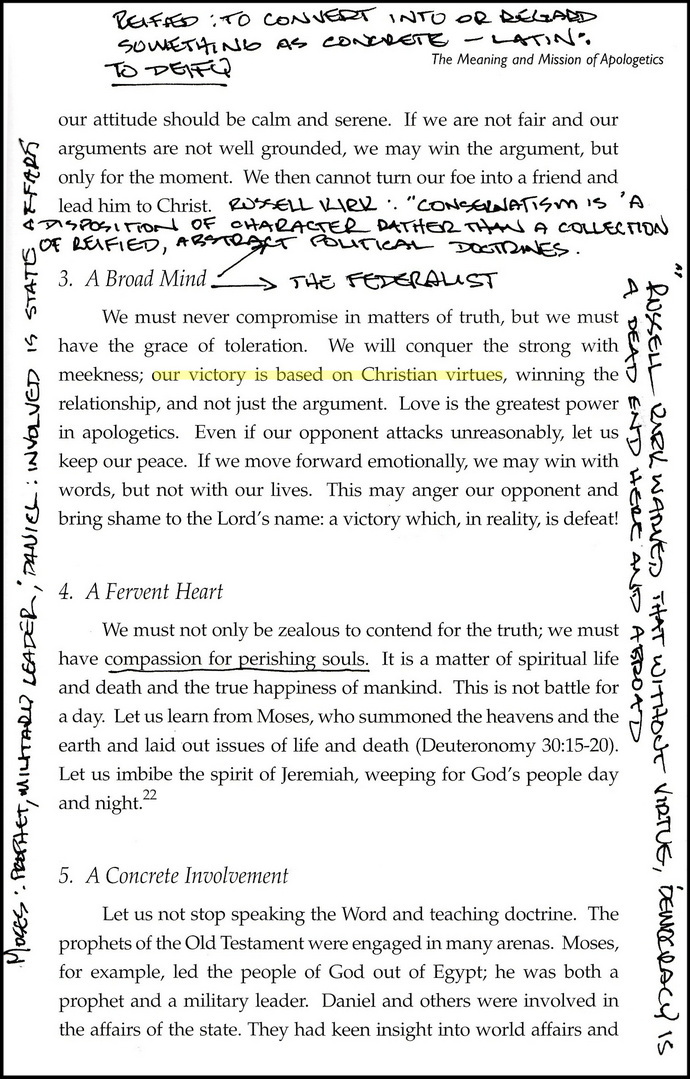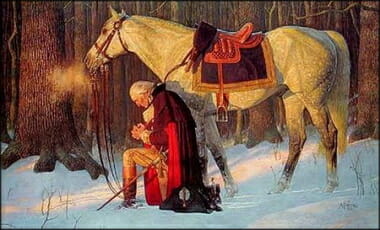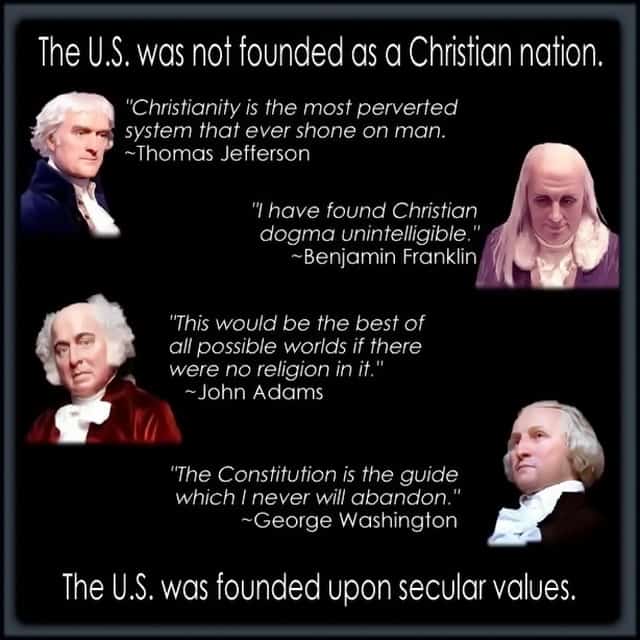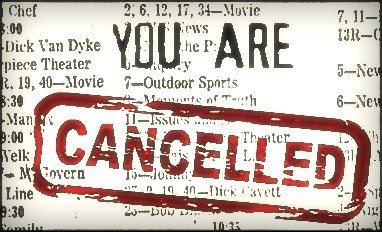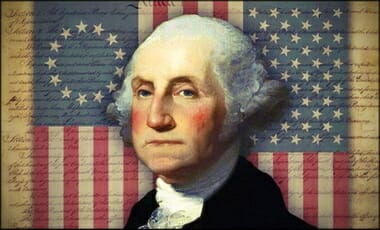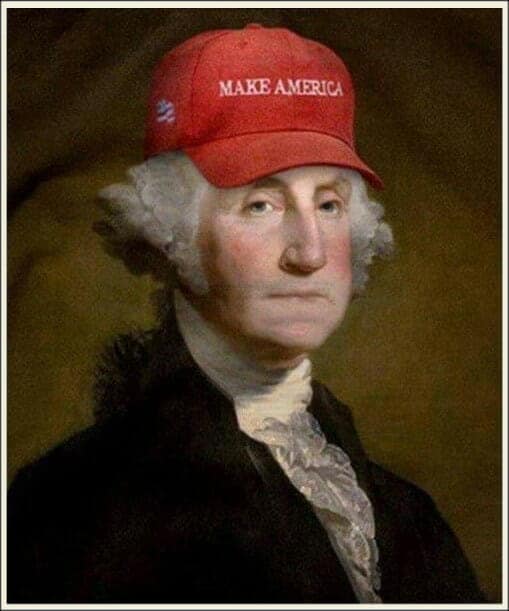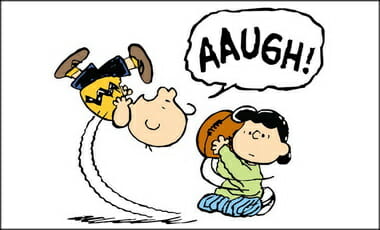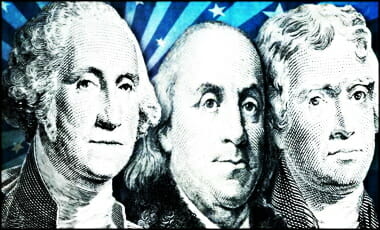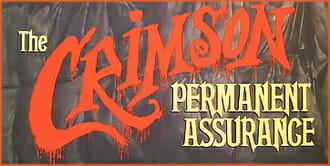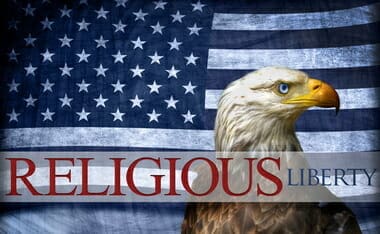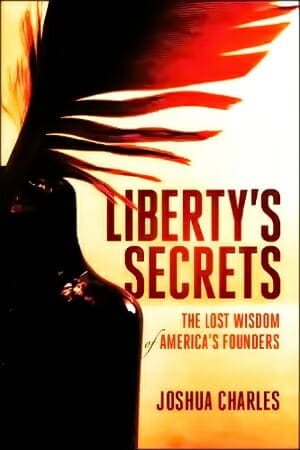This is another “connective reading” post. These come about when I am on a trip with time to think through well what is in front of me. The last time was a 10-hour layover coming back from Michigan — a series of cancelled flights. Southwest. In that post I was connecting a book I read many years ago on the effects of marijuana with a totally unrelated book on apologetics.Marijuana | Doing Some Connective Reading In An Airport
This connective reading lies less far apart timespan wise. Before heading to Utah for a family hike through Zion, I came across this FEDERALIST article about Russell Kirk and the foundation for conservatism. Here is the excerpt:
… Michael Federici gives a brief but insightful introduction to the newly rereleased version of The Politics of Prudence, Kirk’s collection of essays first published in 1993 after the collapse of the Soviet Union and the end of the Cold War. The work attempted to present conservatism anew in an age now free from the ideological struggle of the Cold War.
Conservative Character
Federici notes that Kirk understood conservatism to be “a disposition of character rather than a collection of reified, abstract political doctrines. It is the rejection of ideology rather than the exercise of it.” This, too, is the understanding of conservatism laid out by the champion of conservatism in the 21st century, my former teacher Sir Roger Scruton.
This understanding may help one realize why conservatism fails as an ideology — because it is not an ideology. As Kirk humorously notes early on in one of the early chapters of this book, conservatives who attempt to ideologize conservatism make the first and most egregious error in understanding conservatism.
If, though, conservatives are united in “a disposition of character” and “rejection of ideology,” what is that “disposition” and what does the “rejection of ideology” entail?
[….]
Second, the conservative accepts that the cosmos is governed by a transcendent moral order. This transcendent moral order serves as the basis of the mystery and wonder of existence, which makes possible the life of love. This disposition of love that guides conservatives is opposed to the modernist view of existence, “an arid and loveless realm” that “is a stage for the ego, with its appetites and self-assertive passions.”
Against Ideology and Centralized Power
Next, the rejection of ideology is principally opposed to the double threat of “an earthly paradise” and “centralized power,” which motivate totalitarian impulses.
Three of the chapters, originally lectures given by Kirk, illustrate these ideas. First, “The Errors of Ideology” explores the ideologue’s outlook and disastrous policies. The ideologue, Kirk explains, “thinks of politics as a revolutionary instrument for transforming society and even transforming human nature.” This outlook and ideological construction of politics is what the conservative rejects.
Second, Kirk’s brief but illuminating reflection on “The Politics of T.S. Eliot” helps the reader understand more fully the conservative disposition. The life and writings of Eliot reveal the conservative’s distrust of “centralized power” in any form, be it under “capitalism” or “socialism” or any other ism. The destruction of ethics and theology by practical utilitarianism has caused the despotism of merciless and heartless politics.
We are told, repeatedly, to keep God and morality out of politics. Yet, as Eliot insisted, society is bound together by common religion and a common ethical outlook. Without the recovery of the ethics of kindness and compassion, rooted in the Christian God, Western society runs to its own destruction under “the cult of the colossal.”
Hang with me here, there is going to be some biographical info coming up.
My professor of missions was Ray D. Arnold… he was one of the 1,000 missionaries that General MacArthur called to go to Japan at the conclusion of WWII. One blog notes this about the endeavor:
- Perhaps General MacArthur didn’t succeed in bringing Christianity to Japan in the institutional sense. But he did bring mercy, forgiveness and respect for human dignity–the heart of Christianity–and these the Japanese graciously accepted.
Here is more via TIM SHORROCK:
In November 1945, two months after he accepted the surrender of Japan on the deck of the USS Missouri, General Douglas MacArthur sat down with a delegation of American clergy at his headquarters in the Dai-Ichi Insurance Building in downtown Tokyo. The four churchmen had come to Japan to rekindle a dialogue with Japanese Christians cut short by World War II and were the first Americans in civilian dress to enter postwar Japan. MacArthur, a lifelong Episcopalian, asked them to send 1,000 missionaries to Japan as soon as possible. “Japan is a spiritual vacuum,” he said. “If you do not fill it with Christianity, it will be filled with communism.”
So began one of the strangest episodes of the Cold War: MacArthur’s attempt to harness Christianity in his mission to transform Japan into an American-style democracy. Over the next five years, over 1,500 American missionaries arrived in Japan in answer to the call from MacArthur and a recruitment drive launched by the mainline American churches. Most of them were young people who came to Japan fresh from college, bible school or the military, filled with visions of remaking Japan and providing spiritual guidance and sustenance to a defeated nation.
[….]
Going by the numbers, MacArthur’s crusade was a miserable failure. In the political turbulence after World War II, millions of Japanese joined the reborn Japanese Communist Party and cooperated with communists and leftists to organize labor unions and demonstrate against the spread and testing nuclear weapons. Fifty years after the war, the number of Japanese who call themselves Christians remains a little over one-half of one percent of the population, the same level it was before Pearl Harbor.
But judged on human terms, the American missionary influx after 1945 helped heal the wounds of war and exposed the defeated Japanese to a new kind of American, neither businessman or soldier, willing to forgo the comforts of home to share in the uncertainties and poverty of postwar Japan. “They were young and idealistic, and identified with Japan,” recalls Kiyoko Takeda Cho, a prominent Christian intellectual who lives in Tokyo. “They represented not the ruling country, but came for reconciliation. That attitude was very much appreciated, not only by Christians but also non-Christians.”….
Of course, in today’s ever more politically correct world, would you ever fathom a well-known general today calling for missionaries to, say, Iraq? However, the main point here is that both Russell Kirk and General MacArthur had a keen sense of the extent of Communism and that void it fills.
As does the author of the book I brought. The author was introduced to me through a class I took on missions with Dr. Arnold as the professor. Dr. Arnold used a smaller quote from Lit-Sen Chang’s booklet, but you can see the keen awareness of the extent of this “do-goodism,” Communism and Socialism give people:
As Dr. Carl F. H. Henry pointed out: “The Chicago evangelicals, while seeking to overcome the polarization of concern in terms of personal evangelism or social ethics, also transcended the neo Protestant nullification of the Great Commission.” “The Chicago Declaration did not leap from a vision of social utopia to legislation specifics, but concentrated first on biblical priorities for social change.” “The Chicago evangelicals did not ignore transcendent aspects of God’s Kingdom, nor did they turn the recognition of these elements into a rationalization of a theology of revolutionary violence or of pacifistic neutrality in the face of blatant militarist aggression.” (Cf. Dr. Carl F. H. Henry, “Evangelical Social Concern” Christianity Today, March 1, 1974.) The evangelical social concern is transcendental not merely horizontal.
We must make it clear that the true revolutionaries are different from the frauds who “deal only with surface phenomena. They seek to remove a deep-seated tumor from society by applying a plaster to the surface. The world’s deepest need today is not something that merely dulls the pain, but something that goes deep in order to change the basic unity of society, man himself. Only when men individually have experienced a change and reorientation, can society be redirected in the way it should go. This we cannot accomplish by either violence or legislation” (cf. Reid: op. cit.). Social actions, without a vertical and transcendental relation with God only create horizontal anxieties and perplexities!
Furthermore, the social activists are in fact ignorant of the social issues, they are not experts in the social sciences. They simply demand an immediate change or destruction of the social structures, but provide no blueprint of the new society whatsoever! They can be likened to the fool, as a Chinese story tells, who tried to help the plant grow faster by pulling it higher. Of course, such “action” only caused the plant to wither and die. This is exactly what the social radicals are doing now! And the W.C.C. is supporting such a tragic course!
We must challenge them [secular social activists] to discern the difference between the true repentance and “social repentance.” The Bible says: “For the godly grief produces a repentance that leads to salvation and brings no regret; but worldly grief produces death” (II Cor. 7:10). This was the bitter experiences of many former Russian Marxists, who, after their conversion to Christ came to understand that they had only a sort of “social repentance”—a sense of guilt before the peasant and the proletariat, but not before God. They admitted that “A Russian (Marxist) intellectual as an individual is often a mild and loving creature, but his creed (Marxism) constrains him to hate” (cf. Nicolas Zernov: The Russian Religious Renaissance). “As it is written, there is none righteous, no, not one…. For all have sinned and come short of the glory of God” (Rom. 3:10,23). A complete change of a society must come from man himself, for basically man is at enmity with God. All humanistic social, economic and political systems are but “cut flowers,” as Dr. Trueblood put it, even the best are only dim reflections of the Glory of the Kingdom of God. As Benjamin Franklin in his famous address to the Constitutional Convention, said, “Without His concurring aid, we shall succeed in this political building no better than the builders of Babel.” Without reconciliation with God, there is no reconciliation with man. Social action is not evangelism; political liberation is not salvation. While we shall by all means have deep concern on social issues; nevertheless, social activism shall never be a substitution for the Gospel.
Lit-Sen Chang, The True Gospel vs. Social Activism, (booklet. Presbyterian and Reformed Publishing Co: 1976), 9.
Now, for some more biographical background to Lit-sen Chang, it fits well with the drive of this post.
Again, hang in there:
What is Apologetics? is the English translation of a portion of the late Dr. Lit-Sen Chang’s four-volume work, Comprehensive Christian Apologetics. I have taken the first six chapters of Volume 1 (originally published by Tien Dao Publishing House, Hong Kong, in 1982), and rendered them in a style which is compatible with his original Chinese. The result is a piece of theology-as-proclamation, a sermon-in-print.
Dr. Chang (1904-1996) is probably the most prolific Chinese Protestant theologian during the second half of the twentieth century. He had been a zealous promoter of Confucianism and Buddhism, a brilliant university professor and author, and a confidante of Generalissimo Chiang Kai-Shek during the Sino-Japanese War (1937-45), before he met Jesus Christ in the 1950s. Thereafter he devoted himself to theological study and the defense of the Christian faith. He had several memorable encounters with God during his Christian career, including healing from sickness. For decades he was professor of missions at Gordon Conwell Theological Seminary in South Hamilton, Massachusetts; but his passion was apologetics, defending Christianity and proclaiming it to the Chinese people. To make the best use of his time, Dr. Chang would often only sleep for two hours a night. A meticulous manager of his time, he took his supper as a “second breakfast,” as it were, and pursued his writing, editing and correspondence into the night. He was the author of over eighty books and booklets (these do not include significant works penned before his conversion).
Lit-sen Chang, What Is Apologetics (translated by Samuel Ling, Phillipsburg, NJ: 1999), xiii.
[….]
Dr. Lit-Sen Chang, Chinese Christian apologist and theologian, tireless author and distinguished scholar in Far Eastern philosophy and religion, gave his life to the exposition and defense of the historic Christian faith in obedience to his Lord and Master. He was born on May 9, 1904 in Wu Hsi, Kiangsu province, China. From a young age he received a thorough education in the Confucian classics, and imbibed the traditional Confucian scholar’s passionate concern to rescue China from her national plight. As he witnessed his country on the verge of extinction, he cried out for national salvation through individual endeavor. He became a prolific author.
Dr. Chang graduated from Fu Tan University, Shanghai, intent on serving and saving his country through a career in law and government. At age twenty-one he became a university professor in Peking, thus becoming the youngest professor of his time. He studied law at the Sorbonne, Paris, and traveled to the universities of London, Cambridge, Oxford and to Belgium, Germany, and Switzerland in search of China’s national salvation. He returned to China at twenty-six, and was appointed professor at several leading universities, as well as dean of the College of Social Sciences, Labor University.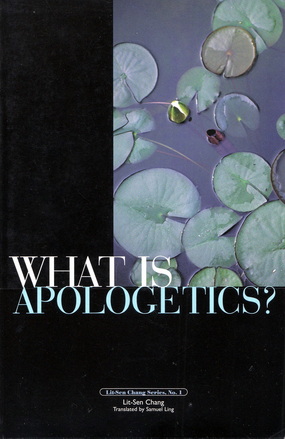
When Japan invaded mainland China in 1937, Dr. Chang was recruited by the central government to important positions in the Nationalist Party, the National Government and the Ministry of Defense, turning his attention from law to political strategy. After China’s victory over Japan in 1945, he won a seat to the Parliament of the Republic of China, and was later appointed Deputy Commissioner for Overseas Chinese Affairs.
Confronted by multiple and complex social ills in China, Dr. Chang realized that the way to peace and national strength lay beyond law and government, in the human heart. He immersed himself in Confucianism, Taoism and Buddhism, including the mystical Ch’ien school of Buddhism. He felt called to regenerate Chinese culture and the religions of the East. He founded Chiang Nan University, and recruited noted contemporary Confucian philosophers such as Ch’ien Mu, T’ang Chun-I and Mou Tsung-san as professors. He planned to visit India and strategize with scholars there to revive the traditional religions of Asia.
As the political situation in China deteriorated, Chang became exiled in Indonesia. There he heard the gospel by the grace of God, repented of his sin and committed his life to Jesus Christ. He gave up all his plans and ambitions, and came to Boston to study theology at Gordon Divinity School. He was fifty-three by that time. He graduated from Gordon summa cum laude, and served as professor of missions for many years. He was honored with the Doctor of Literature degree from Wheaton College, and when he retired from Gordon Conwell Theological Seminary, he was named “Distinguished Professor Emeritus.”
Dr. Chang knew God’s vocation to devote his later life to the propagation of the Christian faith through literature. He wrote day and night in order to “give the reason for the hope” within (I Peter 3:15), and to “contend for the faith that was once for all entrusted to the saints” (Jude 3). Departing from popular trends of the twentieth century, Dr. Chang boldly proclaimed the infinite absolute God of the Bible, and critiqued humanistic thinking East and West without compromise. He lived a simple, frugal and diligent life, tirelessly writing and publishing his works with no regard for return or reward. His writings in Chinese and English totaled over eighty volumes. His mature thought is seen in the four-volume work on apologetics and eight-volume opus on systematic theology. These are not only valued for their scholarship, but comprise a unique treasure for the Body of Christ, as they both edify the reader’s heart, and inform the reader’s mind through a passionate and reasoned defense of the whole counsel of God revealed in Scripture.
Dr. Chang died on January 19,1996 in Boston at the ripe old age of ninety-two. He was survived by five children and seven grandchildren. May the glorious Triune God who called him home continue to give fruit to his voice in the twenty-first century, that “by faith he still speaks, even though he is dead” (Heb. 11:4).
Lit-sen Chang, What Is Apologetics (translated by Samuel Ling, Phillipsburg, NJ: 1999), xvii-xix.
So, Dr. Chang was very familiar with Maoist Communism.
Okay, what is the foundation then for a Christian life in response to all the “isms” offered to man?
Character. Virtues.
Roger Scruton Quickly Defines American Culture
Here is the short excerpt followed by a scan of the page it came from:
- We will conquer the strong with meekness; our victory is based on Christian virtues, winning the relationship, and not just the argument. Love is the greatest power in apologetics. Even if our opponent attacks unreasonably, let us keep our peace. If we move forward emotionally, we may win with words, but not with our lives.
CHRISTIAN virtues [character, really of Christ]. Not our virtues.
Of course, this reminds me of John Adams quote:
- “…we have no government, armed with power, capable of contending with human passions, unbridled by morality and religion. Avarice, ambition, revenge and licentiousness would break the strongest cords of our Constitution, as a whale goes through a net. Our Constitution was made only for a moral and religious people. It is wholly inadequate to the government of any other.”
John Adams, first (1789–1797) Vice President of the United States, and the second (1797–1801) President of the United States. Letter to the Officers of the First Brigade of the Third Division of the Militia of Massachusetts, 11 October 1798, in Revolutionary Services and Civil Life of General William Hull (New York, 1848), pp 265-6.
Our form of government is set up to incorporate this character and virtues assuming the Judeo-Christian ethic. Without those we are a ship without a sail.
This quote from an article my Pastor posted on his FB notes (more currently) the issue:
- Either way, it does point to an emerging problem within the United States: the collapse of a shared moral consensus that saw as a source of public good the broad moral contours of a Christian ethic, even if detached from the religious claims of Christianity. (WORLD MAGAZINE)
Yep. Apologist! preach the totality of our view, and how our virtues differ in their foundation from other views.
- “Instead of thinking of Christianity as a collection of theological bits and pieces to be believed or debated, we should approach our faith as a conceptual system, as a total world-and-life view.”
Ronald H. Nash, Worldviews in Conflict: Choosing Christianity in a World of Ideas (Grand Rapids, MI: Zondervan, 1992), 19.
More Russell Kirk:
Russell Kirk’s Ten Principles of Conservatism
